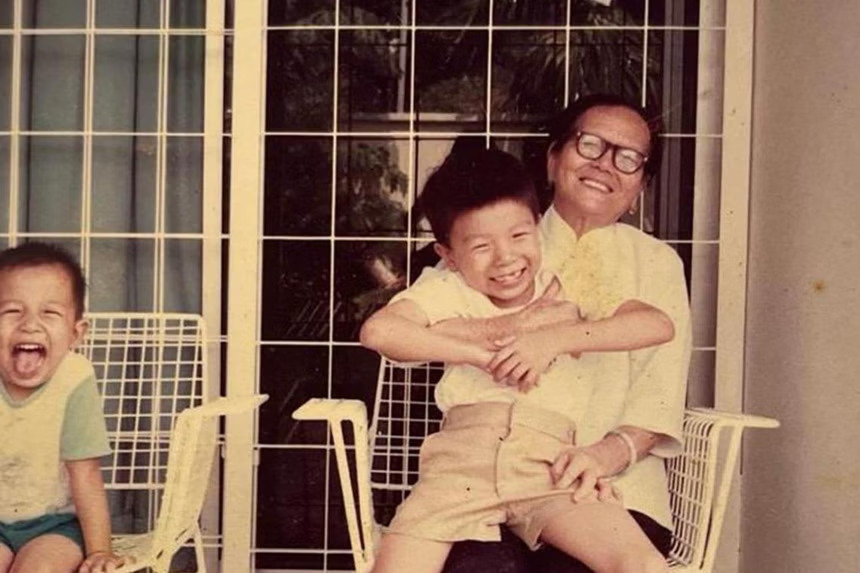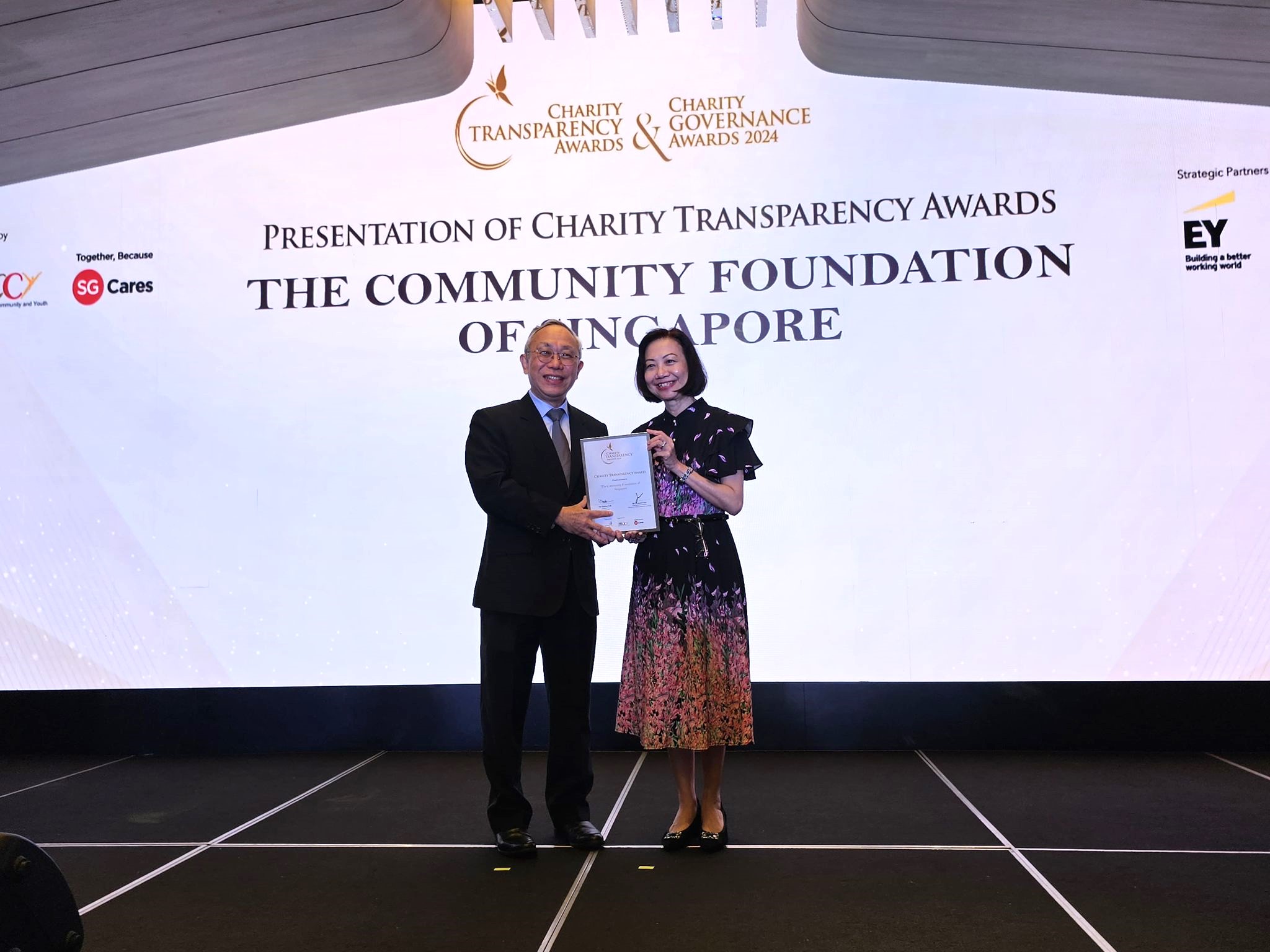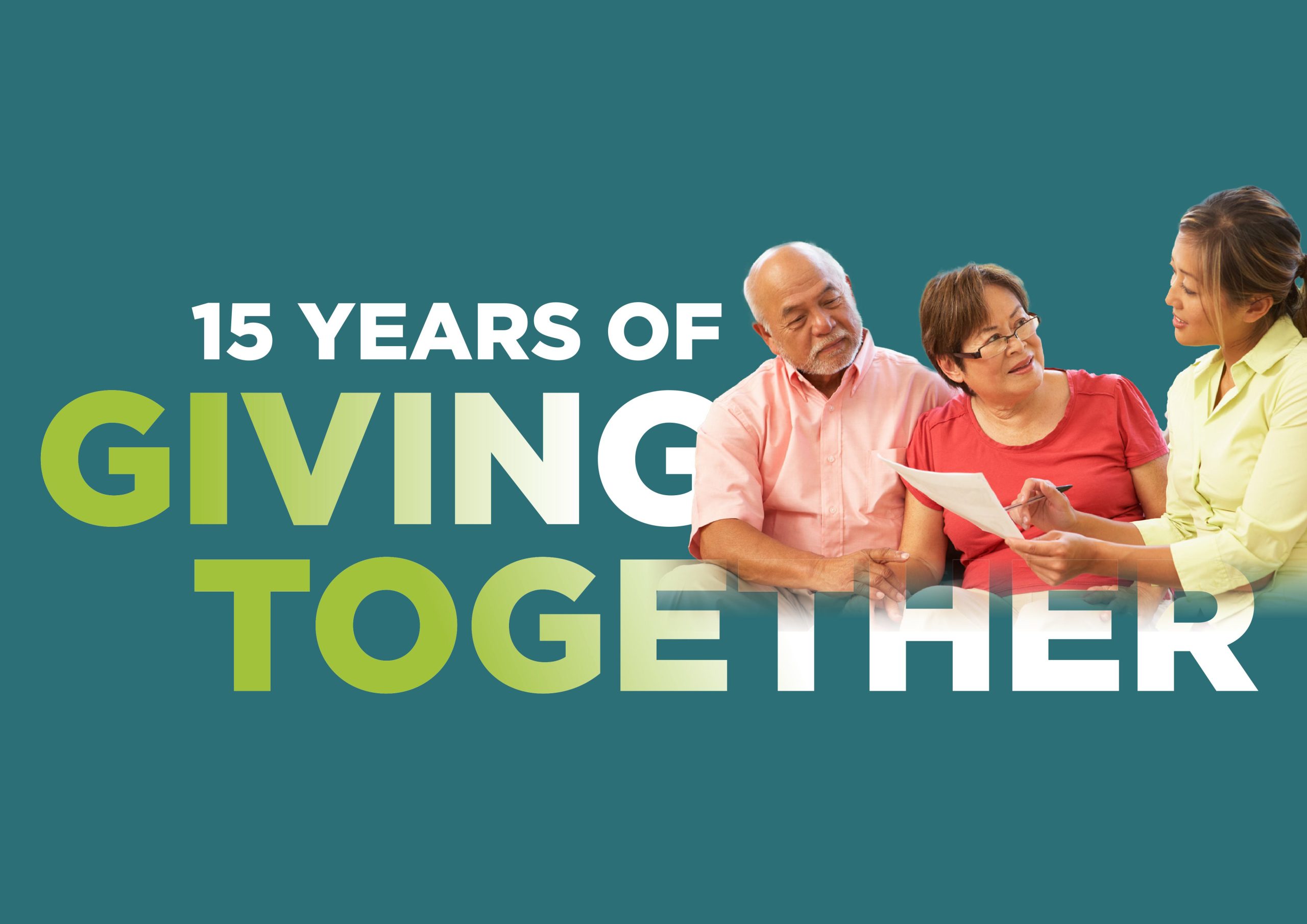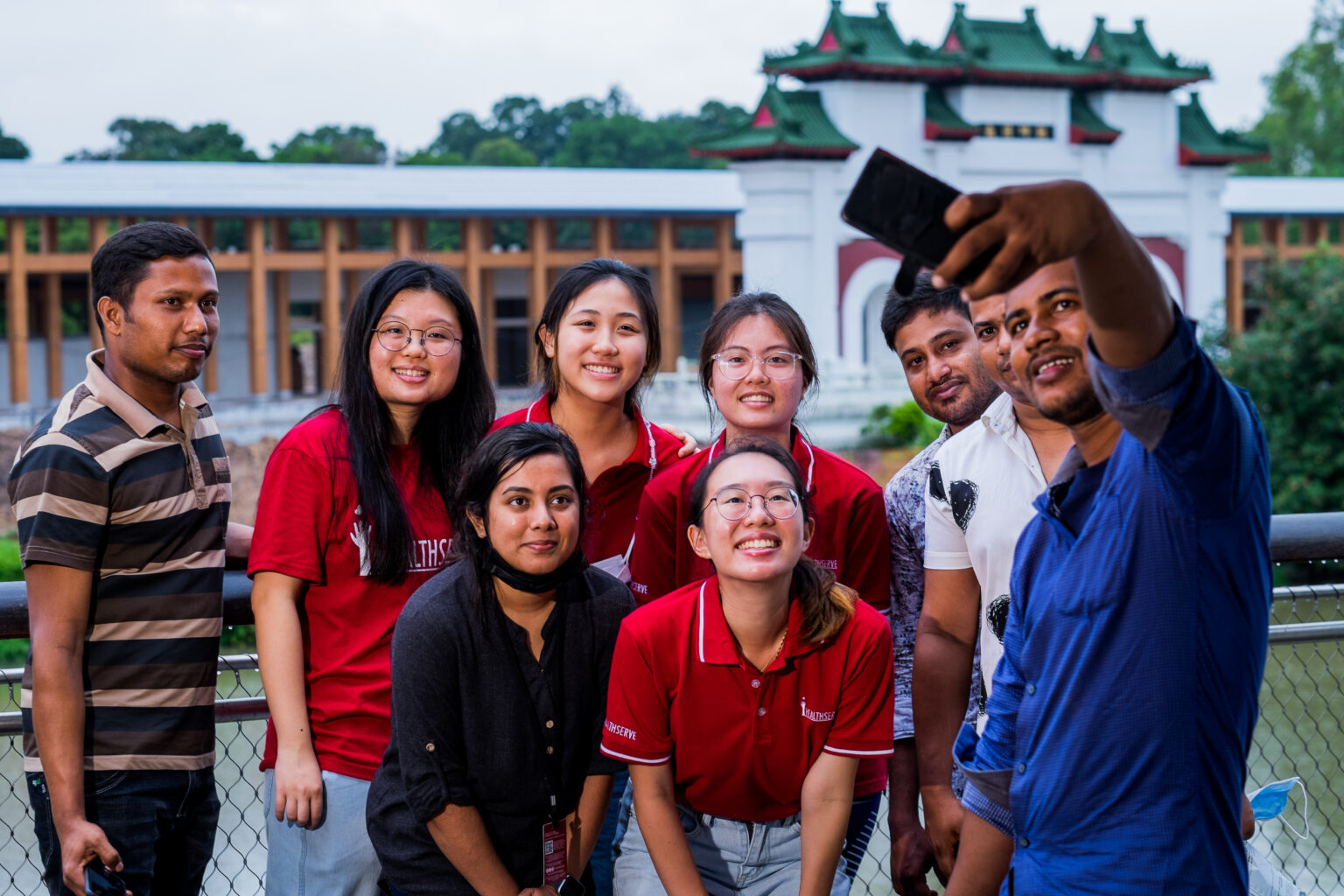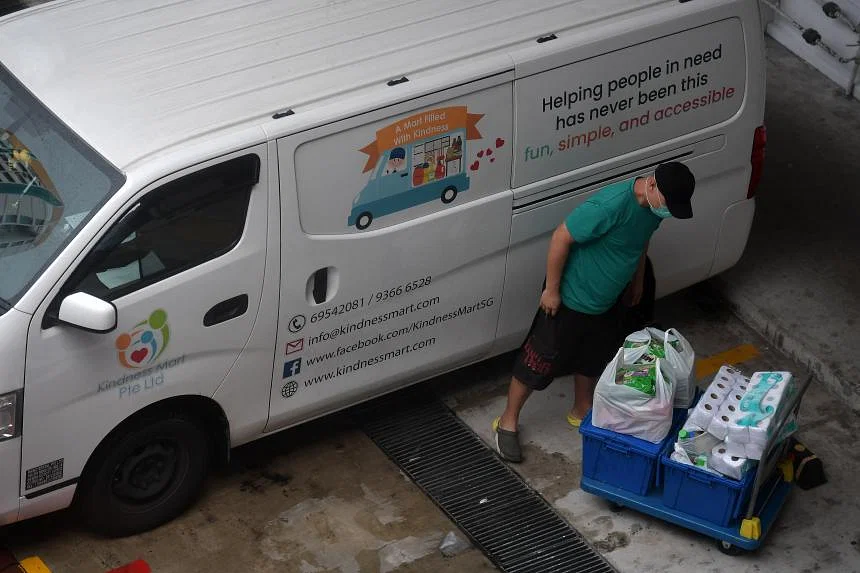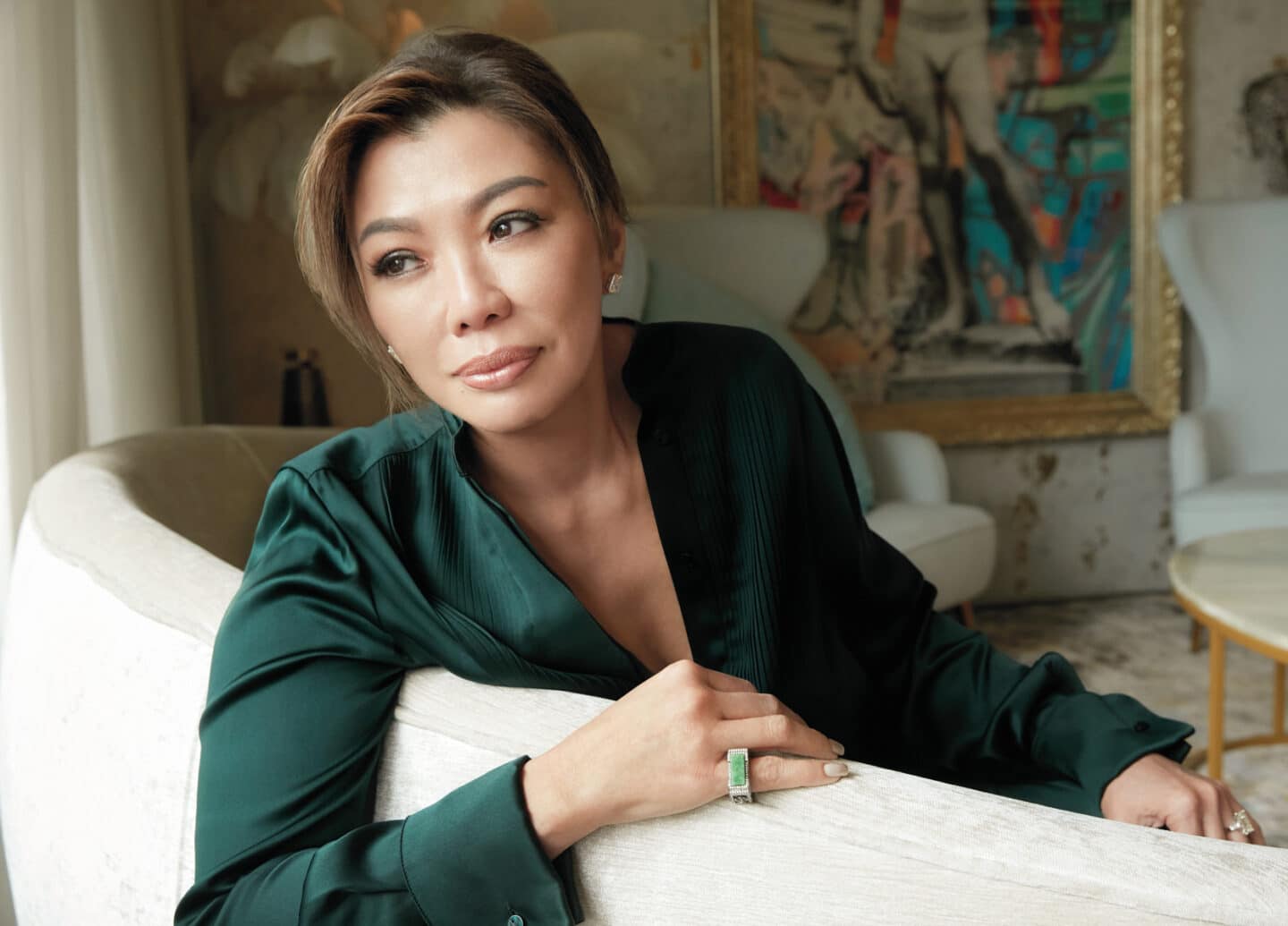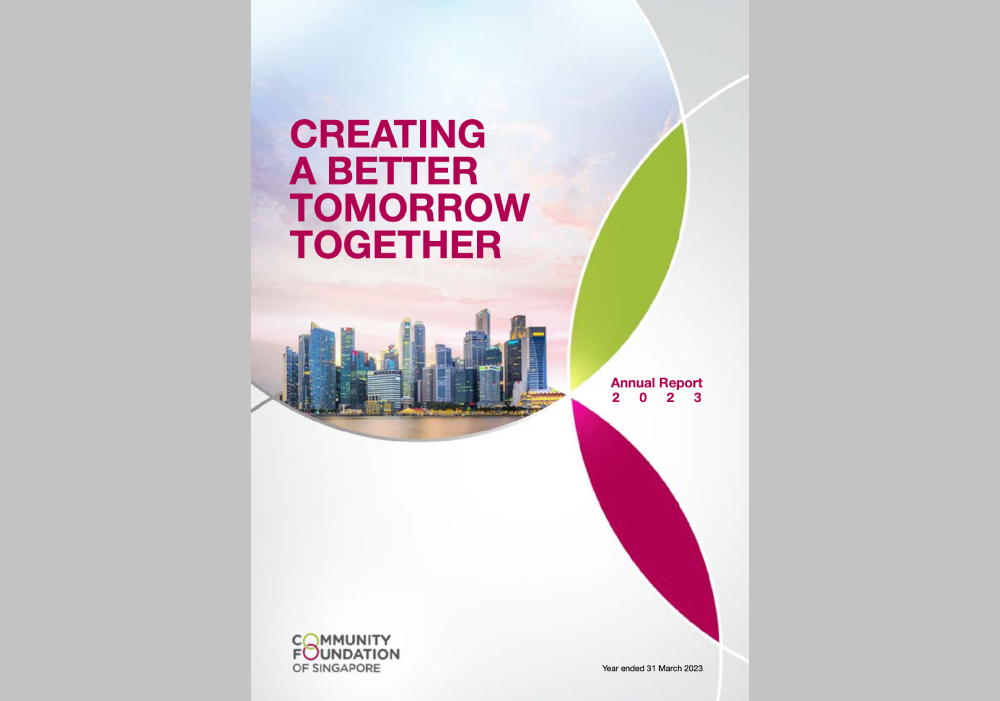News
Start a donor-advised fund: plan your giving flexibly and sustainably

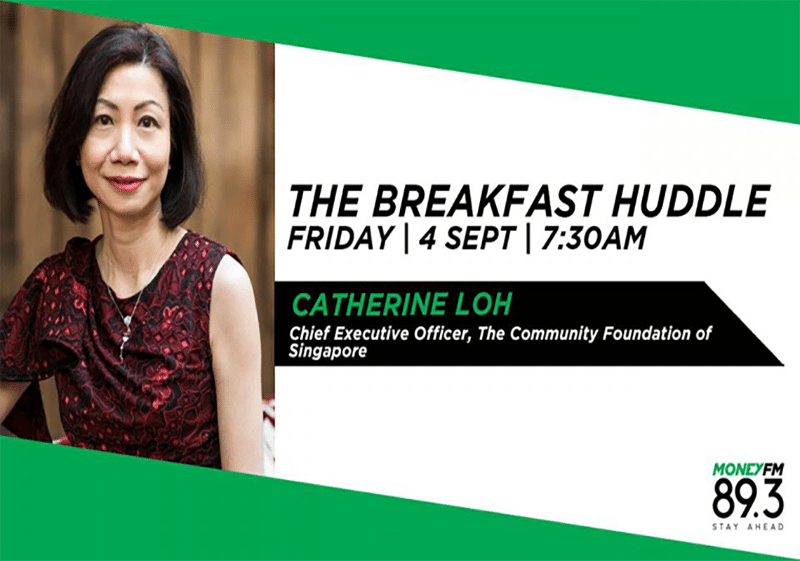
CEO Catherine Loh goes on Money FM 89.3 to speak about the donor-advised funds.
Elliott Danker: Funds such as DAFs are especially needed during the current COVID-19 pandemic because that’s where you have more people in need. Many charities have shared that donations have been falling.
Manisha Tank: A DAF allows donors to give in a more informed, structured and sustained manner over time. As of March 2020, there are 143 DAFs set up with CFS, which is double the number in March 2015. How does a DAF actually work and why has there been an increase in the number of DAFs over the years?
Elliott: With us is Catherine Loh, CEO of the Community Foundation of Singapore. We’ve been trying to describe and nail down the meaning of donor-advised funds or DAFs. It’s like a personal charitable savings account; is there anything more you could tell us about DAFs?
Catherine Loh: It’s easier to give you a concrete example. One such DAF is the SR Nathan Education Upliftment Fund, which was set up by our late president when he retired in 2011. As he had received help himself back when he was young, Mr Nathan wanted to set up a fund to help students at risk of dropping out of school due to financial difficulties.
So through this one endowment fund established with us, he was able to reach out to many educational institutions like ITE (Institute of Technical Education), various polytechnics and universities to support students in need. Some special schools like the Mountbatten vocational school and even the four self-help groups have benefitted.
Even though he is no longer with us, we work with a committee comprising a family member, close friends and those who have a deep interest in the community to guide the fund. Over the years, thousands of students have obtained their diplomas and degrees with the support from the Fund. Hopefully from the example you can see that for a donor-advised fund, donors get to name their fund, to choose the causes that they are interested in supporting, and they can use the fund to support more than one charity. There’s a lot of flexibility here.
Manisha: Is a DAF only for the wealthy?
Catherine: There is a minimum amount to set up a donor-advised fund. The minimum amount is $200,000 but a donor can start off with $50,000 and fulfil the pledge over a period of time.
Elliott: How big is the concept of a DAF in Singapore when compared to the rest of the region or the world?
Catherine: This concept is pretty new. In Southeast Asia, we are one of the few established community foundations. However, in the US community foundations are very well established and donations into donor-advised funds are large.
Manisha: If you’re someone who’s decided on having a DAF to take care of your charitable causes and your contributions, is the due diligence all done for you?
Catherine: Before we talk about a charity or their programmes to a donor, we would have done the basic due diligence; checking up on their finances, making sure it is a charity that is doing good work. When we recommend, we try to match the donor’s interest with what the charities can offer and really helping the donors achieve their objectives.
Manisha: Do the donors come to you for different reasons, or some have just come into money and have decided to do something useful with it?
Catherine: People come with their personal reasons, but most do want to do good and they do want to give. The whole purpose is to ensure that their money is put to good use. They want to have the peace of mind that the charities are doing the work that they are supposed to do. This is where we can help to provide the professional advice and to give them the peace of mind.
Elliott: You talked about the minimum amount to start a DAF. How do you start one, and if I’m opening one with CFS, do I have to pay a fee?
Catherine: It is signing a deed and that’s it. It takes about two to four weeks depending on the complexity of the donor’s unique circumstances and what their requirements are. But it is definitely easier than setting up your own family foundation or a corporate foundation.
Manisha: Why has there been an increase in the number of DAFs?
Catherine: We have seen an increase in awareness as we have also been more active in explaining this concept to the public. Over the years, we’ve had happy donors referring their friends and colleagues to us and we’re glad that we’ve gained the trust of our donors and charity partners alike
We’ve also seen an increase in demand because this structure meets the needs of many donors. We’ve established funds for both individuals and businesses; individuals set up memorial funds to remember a loved one or to celebrate significant events like retirements, birthdays and wedding anniversaries. DAFs are useful for financial and legacy planning as well, because donations into a fund can be eligible for two and a half times deduction off taxable income. It can be used as an instrument for tax planning. It can also be named as a beneficiary in a will or a trust. Increasingly, we work with lawyers and executors of wills to administer money left behind for charity.
Very often executors are left vague instructions to just gift the money to charity, and by working with us they have the peace of mind that there are professionals working to identify the right charities and programmes for them.
Manisha: What are the differences between giving to charity and setting up a DAF?
Catherine: If the donor is interested in accountability and transparency and they want to keep track of the donations for regular, long term and more strategic giving, then a DAF is very useful. What we want is for the donor to understand the cause or causes that they are interested in, to get to know the charities and the types of programmes that are out there. Once the donor gets involved, they are more likely to support their causes for a long period of time.
Manisha: One of the best things to donate is time; does that happen and do the donors get involved with these causes and turn up in person to see what’s on the ground?
Catherine: We do have donors who do that whenever they have the time. They are busy professionals who may not have a lot of time and they just give with money first. But we do encourage them to get involved and not just themselves but with their families. Very often we want to not only engage the donors but their family members as well, to get them to understand what they are really helping. In so doing, they would be the ones coming up with new ideas and working directly with the charities to create positive social change. This is a culture that we want to build in Singapore.
Elliott: Some charities are suffering during this COVID-19 pandemic, unable to have fundraising dinners; what has the impact of the pandemic been on DAFs? Should people consider going into a DAF during this pandemic because it’s more focused and safer with due diligence all done?
Catherine: We have seen activity throughout this whole year, so activity hasn’t slowed down for us at all. In fact, donors are talking to use because they want to know how they can help over the longer term; they want to know what are the underfunded sectors and the pressing issues that need
support going forward.
What this pandemic has taught is that it is good to be prepared. As the pandemic continues, we have rising unemployment, health risks and donations from the general public that have decreased. For the donors who have planned their giving and established their donor-advised funds in the past with us, this is an opportunity where they have stepped up. Over the past few months, we have seen a very significant amount being given out from our existing donor-advised funds to COVID-19 related causes.
Manisha: What about businesses?
Catherine: We have quite a few businesses who have established donor-advised funds with us as well. There are many reasons for doing so. There is more marketing mileage with a named fund; this can be a starting point to learn about philanthropy before setting up their own corporate foundation. They use it for planning and tracking their charitable budget, and also to give more strategically by tapping on our knowledge, experience and network in the sector.
Elliott: Is it more high network individuals that are taking part in donor-advised funds?
Catherine: For the Community Foundation of Singapore, a donor-advised fund is just one product which we offer; these are targeted at those who have more to give and they want to give in a longer term manner, so their own named fund is suitable. However, we established our own Community Impact Funds (CIF) in response to social issues that we want to address; you may have heard of the Sayang Sayang Fund which was set up in February as an emergency response fund in the wake of COVID-19.
These kinds of Community Impact Funds receive thousands of donations with thousands of donors donating to these funds. These people could be anywhere from students to retirees, anybody who is linked or feels close to the cause.
Listen to the full interview here:
https://omny.fm/shows/money-fm-893/the-rise-of-donor-advised-funds-in-singapore
- Related Topics For You: ACCESSING QUALITY EDUCATION, AUDIO, CHARITY STORIES, CHILDREN, COMMUNITY IMPACT FUND, DONOR STORIES, DONOR-ADVISED FUND, EDUCATION, LEGACY GIVING, NEWS, SAYANG SAYANG FUND, YOUTH
Trending Stories


Karim Family Foundation: Donor-Advised Fund Raises $200,000 to Support Local Sports Champion Loh Kean Yew
Karim Family Foundation: Donor-Advised Fund Raises $200,000 to Support Local Sports Champion Loh Kean Yew
In December 2021, 24-year-old Loh Kean Yew became the first Singaporean to win the Badminton...


‘I thought I couldn’t go through any more of it’: Cancer patient gets help after insurer says ‘no’ to $33k bill
‘I thought I couldn’t go through any more of it’: Cancer patient gets help after insurer says ‘no’ to $33k bill
Good Samaritans have stepped forward to help a cancer patient, who hopes to spend more...

